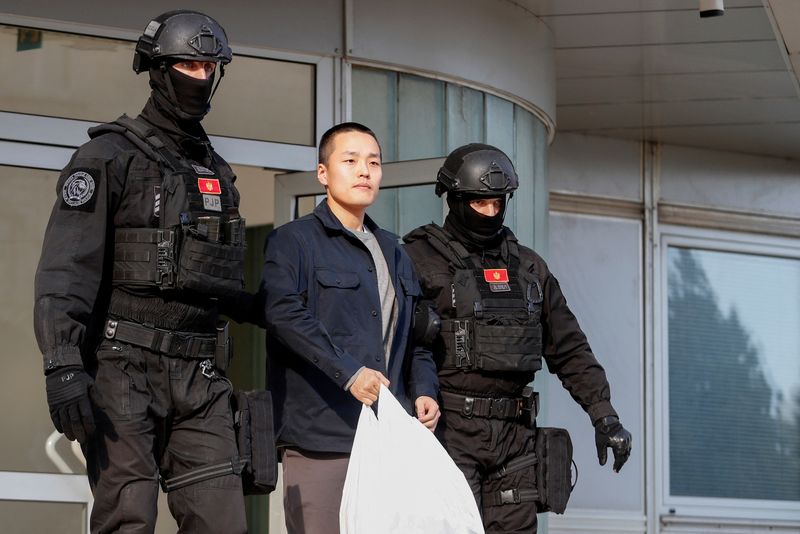By Jody Godoy
(Reuters) -An attorney for the U.S. Securities and Exchange Commission told a jury in Manhattan on Friday that Terraform Labs and its founder Do Kwon repeatedly lied about the success of the cryptocurrency platform, as their trial on claims of defrauding investors drew to a close.
The SEC accuses the Singapore-based company and Kwon of misleading investors in 2021 about the stability of TerraUSD, a stablecoin designed to maintain a value of $1. The regulator also accused them of falsely claiming Terraform’s blockchain was used in a popular Korean mobile payment app.
SEC attorney Laura Meehan said during closing arguments the platform’s success story was “built on lies.”
“If you swing big and you miss, and you don’t tell people that you came up short, that is fraud,” she said.
Louis Pellegrino, an attorney for Terraform, told the jury on Friday the SEC’s case relied on statements taken out of context and that Terraform and Kwon had been truthful about their products and how they worked, even when they failed.
“Terraform is still out there, trying to rebuild and make purchasers whole,” he said.
The regulator is seeking civil financial penalties and orders barring Kwon and Terraform from the securities industry.
Kwon, who was arrested in Montenegro in March 2023, did not attend the trial, which began March 25. Both the U.S. and South Korea, where Kwon is a citizen, have sought his extradition on criminal charges.
Kwon designed TerraUSD and Luna, a more traditional token that fluctuated in value but was closely linked to TerraUSD.
The SEC estimates investors lost more than $40 billion on the two tokens combined when the TerraUSD peg to the dollar could not be maintained in May 2022.
Their collapse also dragged down the value of other cryptocurrencies, including bitcoin, and caused wider havoc in the crypto market, leading several companies to file for bankruptcy in 2022.
Terraform itself filed for bankruptcy protection in January.
The SEC has said Kwon and Terraform secretly arranged to have a third party purchase large amounts of TerraUSD to prop up the price when the stablecoin slipped from its peg a year earlier, in May 2021. Kwon falsely attributed the recovery to the reliability of TerraUSD’s algorithms, according to the regulator.

The SEC also has said Kwon and Terraform falsely touted Terraform’s blockchain as being used to process and settle transactions between customers and merchants on the Chai payment app.
Pellegrino said on Friday that Terraform had disclosed TerraUSD’s peg needed to be defended in May 2021. He said Chai had used the company’s blockchain, but the technical details of how it did so were not important to investors.